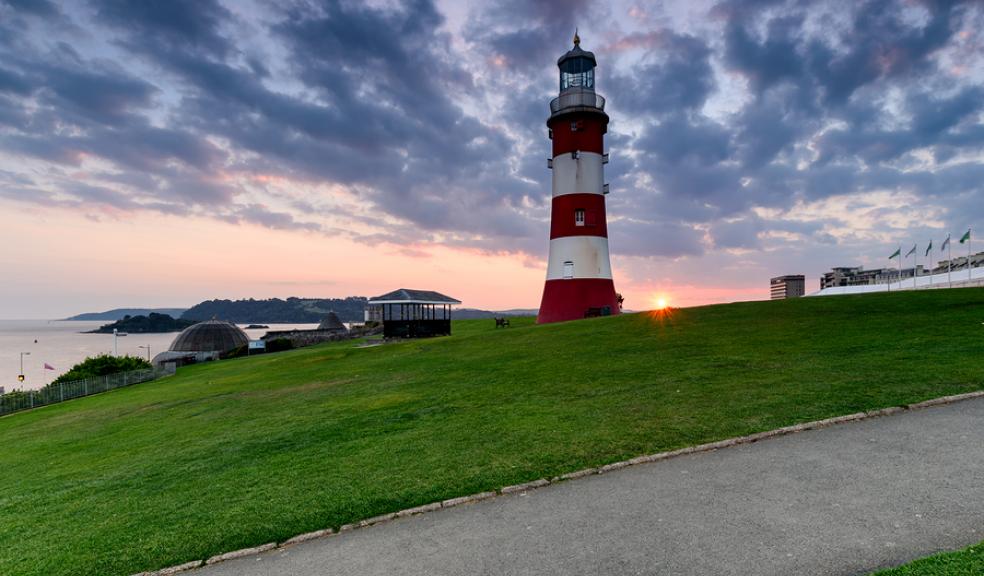
Moving to Plymouth? Here's what you should know
Plymouth tries to market itself as an attractive city to relocate to, whether from within Britain or abroad. And they do a pretty good job. By all accounts, Plymouth residents are happy, the city is vibrant, and public transport and other services are work well and on time. It’s quiet enough to be a pleasant place to live your daily life, while enough happens to prevent boredom. The Rolex Fastnet Race, the British Firework Championships and La Solitaire du Figaro have all been held there. Their Theatre Royal hosts big shows on a consistent basis. Then there’s the waterfront, moorland, views, and public services.
They have surveys and stats to back up their enthusiasm. In a 2014 report by OneFamily, Plymouth was named the best city for families due to its excellent schooling and low crime rates. And, a survey by business psychologists OPP, listed Plymouth as the 5th happiest place to work in the UK. Businesses there find the right balance, neither overworking their employees, nor depleting their drive and motivation.
What do foreigners really think about Plymouth? Is it the utopia it’s made out to be? Let’s take a look at some of the common compliments and complaints of foreigners who have lived in Plymouth.
What do foreigners really think?
The good
Foreigners do tend to agree with the above analysis. The most common denominator is the beauty of the local countryside. Whether in Plymouth itself, or in nearby Dartmoor, there are stunning parks and moors to see. Not only are the views great, but the countryside feel also gives you the chance to have a relaxed lifestyle.
Then there’s the coast, where you can sail, surf, walk along the cliffs, or just sit and take it all in. You can ferry to St Malo, in Northwestern France, which is perfectly picturesque, with fascinating ancient sites to see. You can also easily get to Roscoff, Bilbao and Santander.
In terms of things to do, there are the events we mentioned above, along with local pubs and restaurants. And it’s not too far from bigger cities for when you're really feeling cabin fever.
Plymouth is also a very popular destination for foodies. Since you're in farmland territory, everything is pretty fresh, including delicious seafood. You also get greater value than in the cities.
The locals are known as being extremely friendly, unlike what you'd expect in a big city.
The bad
The town centre is not vibrant, and if you want an exciting urban life, Plymouth is not for you. Some foreigners have gone as far as to describe it as “soulless” in terms of party life. But, to be honest, that’s as far as the criticisms seem to go. If that’s not a defining factor for you, there are few reasons not to give it a try.
Of course, we haven't really spoken about the more dangerous, rundown parts of Plymouth. When you're deciding where to live, find out about the area before making any decisions.
There are those who have ill feelings towards the way Plymothians speak, their intelligence, hairstyle and tattoo choices, and their socioeconomic status. We’ve left those out, as they're based mainly on discrimination and antipathy towards the other.
How to become a Plymothian
When you move to a new place, you don’t want to stand out all that much. It’s inevitable that people will spot some of the differences. Your accent will give you away, especially if you're from outside Britain. But to start fitting in requires little more than interest and openness.
Some good advice from the Plymouth Herald includes:
● Relax
● Don’t rush
● Show interest in the people and the place
● Join local clubs
● Be patient with people taking their time in shops and on the roads. When someone stops to talk to you, give them the time of day
● Talk to everyone
● Don’t complain about the way of life
● Wear appropriate clothing. Designer clothes don’t go well with mud and dirt, so go for wellies and simple clothes instead
● Say words like “Reet” instead of “Alright?” and “Cho” instead of “Goodbye”
● Start your sentences with “I said”
● “My lover” stands in for “mate” or “pal”
What to avoid
There are a few places and situations you should avoid in Plymouth.
● Although Plymouth has a reputation for being relatively crime free, you might find some street drinkers or layabouts in the city centre who can get aggressive.
● Union Street is known for binge drinking, fights, and prostitution.
● Stay away from the coastline when the weather is bad, as fog, cliffs, and sea don’t make the best combination.
Cost of living
How does Plymouth measure up to the rest of the UK in terms of cost of living?
Plymouth is relatively inexpensive compared to big city living. Rent is generally between 40% to 60% cheaper than in London. Food is about 12% cheaper.
Renting somewhere like Oxford is usually over 100% more expensive than in Plymouth. But Manchester, for example, is generally cheaper than Plymouth. Rent is around 25% cheaper. So, while Plymouth is not one of the most expensive places to live, you will have to pay up for the quality of life.
Moving from abroad: post-Brexit
If you're planning on moving from abroad, you have probably already taken into account the impact of the Brexit vote. Leaving aside the social and political consequences, it will make your life easier on a financial level. The pound sterling has taken a beating, and although it has started to recover, it is still significantly short of where it previously was.
Be sure, however, to go about exchanging your currency in the right way. Banks tend to charge exorbitantly high fees for foreign exchange, and there service is not great. It usually takes a few days for the money to come in, and they don’t offer much assistance. They also hide fees in the exchange rate they offer. It’s never the rate you'll find in a Google search, and there’s no good reason for the difference.
Using a foreign exchange firm is your best bet. They charge pretty low fees, and are upfront about them. You'll get the best possible exchange rate as well. And, many of them provide excellent service, that makes the process that much smoother.
Should you move to Plymouth?
There’s no simple answer to the question, seeing as it all depends on your personality and what you're looking for in a city. If you want beautiful countryside, sprawling coastlines, immense cliffs, and lots of moorland, Plymouth is for you. On the other hand, if you want the vibrant city life you'll find in big centres, Plymouth might leave you thoroughly disappointed.
It also depends who you ask. Foreigners generally love Plymouth and those who have spent a period of time there want to go back. People already living in the UK are more likely to criticise, showing suspicion of the locals and some contempt towards the lifestyle.
But that’s natural for the UK. Our region is always better than the one next door. It’s not in doubt, though, that if you're looking to settle elsewhere, few options are as attractive as Plymouth.













